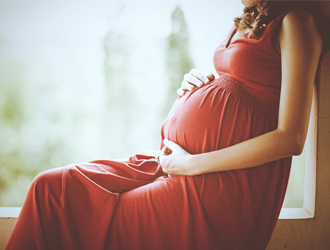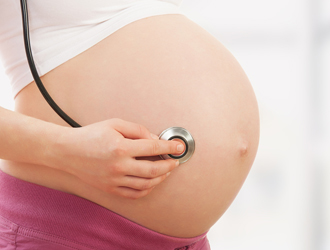Throughout your pregnancy, you may notice some bleeding or spotting. In most cases, spotting during pregnancy is no cause for alarm. However, to better identify your symptoms and respond appropriately to your situation, read on.
Not every woman will bleed during her pregnancy. However, many women will experience occasional bleeding, otherwise known as spotting. There are many times when spotting during pregnancy may not require any treatment, however, there are times when immediate action should be taken. What causes spotting? How do you know when spotting is too much? And when should you take action? Read below to answer your questions.What is Spotting?
Light bleeding while you are pregnant, otherwise known as spotting during pregnancy, is similar to the flow you experience at the beginning, or end, of your period. The color of this blood can range from deep red, to pink, and even brown.
Why Does Spotting Happen?
While it is not always known why spotting during pregnancy occurs, there are several different factors at work within your body that could cause this kind of bleeding.
Having sex while your pregnant may result in spotting, as more blood is flowing to your cervix. For the same reason that you have increased blood flow to your cervix, you might also find that you spot after an internal exam or a pap smear.
Spotting can also happen because of issues completely unrelated to your pregnancy such as, a yeast infection or a sexually transmitted disease. Both of these conditions can be easily treated by a physician, and should not cause alarm.
When is There Cause for Concern?
Many of the previous reasons for spotting can be treated by a doctor with prescription medication, and for some, no medical treatment is even needed. However, there are reasons spotting during pregnancy happens that should set off an alarm and you should seek medical treatment as soon as possible.A doctor should see you if you notice spotting along with additional bleeding and cramping during your first-trimester. These are symptoms of a possible miscarriage or an ectopic pregnancy. Because an ectopic pregnancy means that the embryo has implanted itself outside of the uterus, you should seek immediate medical attention, as this can be a life threatening issue.
If you are spotting during your second- or third-trimester, this could be a symptom of placenta previa, placenta abruption, a late miscarriage, or even premature labor. A doctor should be consulted immediately in order to treat all of these conditions as soon as possible.
Spotting can also simply be a sign of labor. As your cervix begins to dilate, your body may pass your mucus plug, which can be bloody. If this occurs at 37 weeks, or later, you do not need to consult a physician. But, if you are earlier than 37 weeks and you notice a significant amount of blood, you should visit your doctor.
At any rate, if you experience spotting during pregnancy you should consult your midwife or doctor to put your mind at ease and make sure there is indeed no cause for concern.
Now that you are more knowledgeable about the symptoms and reasons for spotting during pregnancy, you have an arsenal of tools to help you take care of your body.



